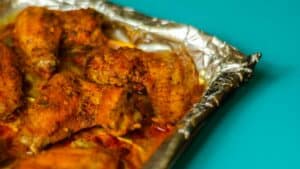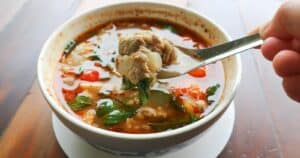Spicy foods are all the rage, but can your love of heat and flavor have a downside when it comes to your respiratory health? The short answer is yes,
Certain compounds in spicy ingredients may initially inflame and irritate lung tissue, potentially worsening asthma and other respiratory problems. But the impact depends on the type and amount of
In this article, we’ll explore how different spicy foods can affect your lungs, including:
- How capsaicin in chilies triggers irritation
- The dual effects of capsaicin on asthma
- Anti-inflammatory benefits of ginger, garlic, and more
- Tips for safely enjoying
spice with lung conditions
The main takeaway is moderation. While spicy foods have some minor lung benefits, capsaicin and excess heat can worsen breathing issues for those with respiratory diseases. Let’s dive in and get the facts on
Spice Up Your Life, Not Your Lungs
Before we dive in, let’s get one thing straight – spicy food is awesome! The rush of endorphins from that fiery flavor definitely improves any meal. But too much of a good thing can be bad, especially when your lungs are involved.
Certain spices contain compounds like capsaicin that can initially inflame and irritate lung tissue. This can worsen breathing issues for people with asthma or other respiratory conditions.
However, the impact depends on the type and amount of
The Hot Science of Capsaicin
When people say a food is “spicy,” they usually mean it contains capsaicin. This naturally occurring compound gives chili peppers and other spicy foods their signature heat and kick.
Capsaicin tricks your nerves into thinking your mouth is literally on fire. This causes temporary pain, inflammation, and increased secretions. And if inhaled, capsaicin can irritate the lungs too.
Studies show capsaicin:
- Activates lung nerve fibers
- Induces coughing and wheezing
- Worsens asthma symptoms
So for those with asthma or other breathing issues, capsaicin can spell disaster. But the story doesn’t end there…
A Spicy Paradox: How Chili Peppers May Also Help Asthma
Here’s where things get interesting. While capsaicin initially inflames airways, it can also have an oddly soothing effect.
After the initial reaction, capsaicin basically overwhelms and desensitizes nerve fibers in the lungs. This reduces their ability to trigger asthma symptoms like coughing and wheezing.
Additionally, capsaicin:
- Has anti-inflammatory effects
- Increases mucus clearance
- Kills bacteria and viruses
So in moderation, capsaicin may improve some aspects of lung health. But definitely avoid inhaling powders like cayenne or chili flakes, which can severely irritate airways.
Beyond Capsaicin: Other Hot Ingredients and Lung Health
Capsaicin isn’t the only player when it comes to spicy ingredients. Let’s look at how some other spices and hot foods can impact breathing:
Ginger
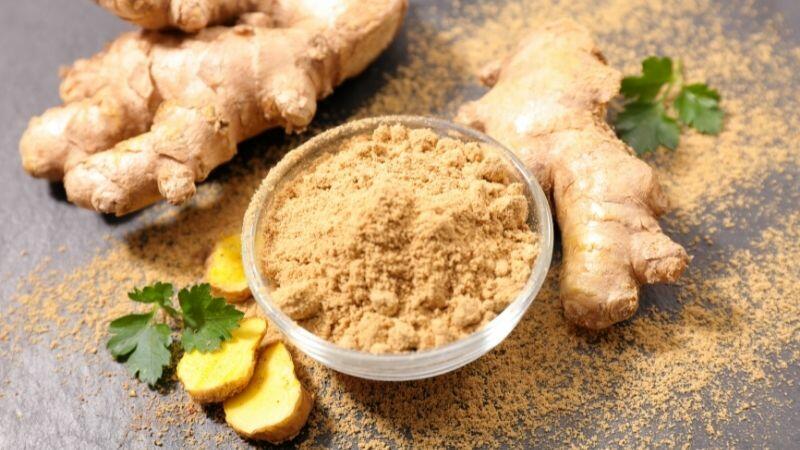
This invigorating root contains compounds called gingerols that suppress coughing. Ginger also exhibits anti-inflammatory, antibacterial, and antiviral activity. Sipping ginger tea can relieve congestion.
Horseradish
Horseradish breaks up mucus with its pungent fumes. It also contains anti-inflammatory and antimicrobial agents. Just avoid inhaling it directly.
Garlic
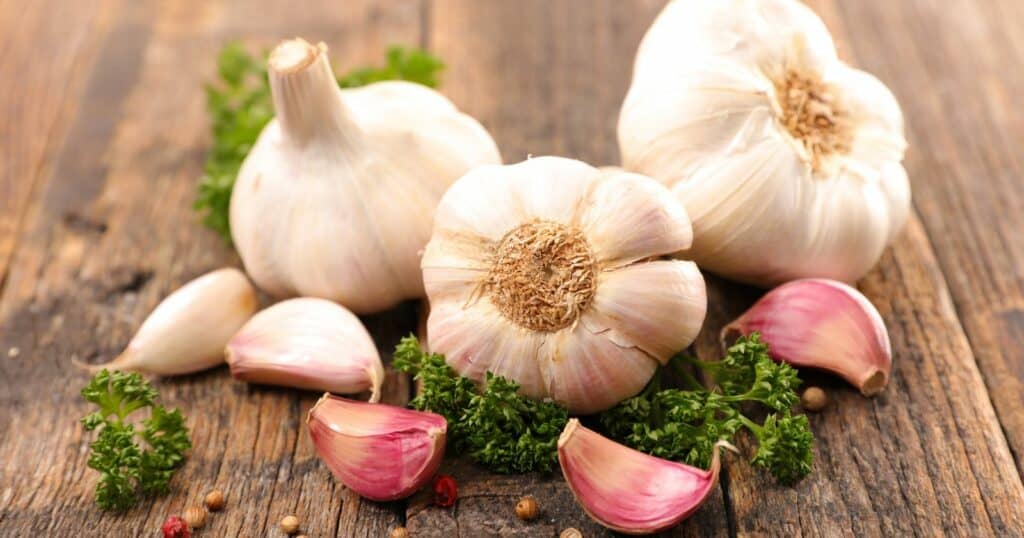
Raw garlic has anti-inflammatory, antiviral, and antibiotic effects. It can help clear chest congestion and combat infections involving the lungs.
Onions
Like garlic, raw onions contain anti-inflammatory compounds and antioxidant flavonoids. They may aid asthma by relaxing airway muscles.
Turmeric
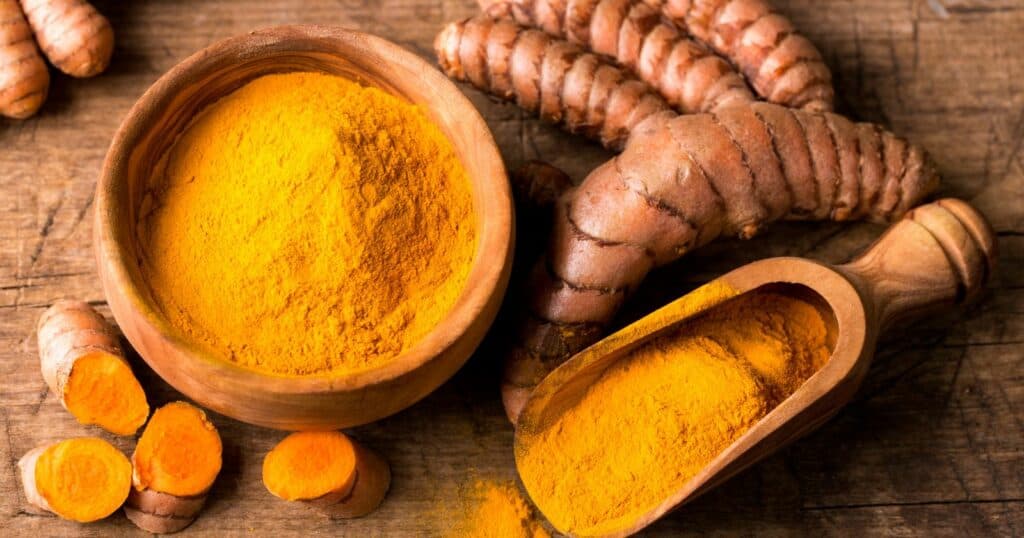
The curcumin in turmeric acts as a natural anti-inflammatory. It can help reduce asthma and other respiratory illnesses.
Mustard
Mustard seeds contain antioxidants as well as compounds that thin mucus. This condiment can ease congestion and related headaches.
Breathing Easier: Making Spice Work for You
Clearly, spicy foods have complex and contradictory effects on our lungs. The key is moderation and avoiding direct inhalation.
Here are some tips to safely enjoy
- Start with small amounts and work your way up.
- Avoid powdered spices that can be inhaled.
- Choose whole foods like chili peppers over extracts.
- Consider taking lactase enzyme pills to digest dairy better.
- Have milk, yogurt, or other dairy on hand to soothe your mouth.
- Try natural cough remedies like ginger tea for relief.
- See your doctor if symptoms seem related to spicy food.
At the end of the day, a little seasoning can add joy to your meals and maybe even some lung benefits. But those with asthma or breathing issues should take care.
By understanding how different spicy ingredients impact your health, you can make informed choices. So
Frequently Asked Questions About Spice and Lungs
Still have questions about the respiratory effects of spicy food? Here are some commonly asked questions:
Can chili irritate the lungs?
Yes, chili peppers and other spicy foods containing capsaicin may initially inflame and irritate lung tissue. This can worsen asthma and other breathing issues. Those with respiratory diseases should use caution.
Is spicy food good for asthma?
In moderation, capsaicin may help asthma by desensitizing nerves and reducing inflammation. But inhaling powders can severely irritate lungs. Those with asthma should be cautious with very spicy food.
Is spicy food good for bronchitis?
maybe in small amounts. Compounds in spices like ginger, garlic, and turmeric exhibit anti-inflammatory effects. But capsaicin can worsen coughing which is problematic with bronchitis. It’s best to avoid very spicy food.
Does spicy food help chest infections?
Possibly. Garlic, onions, ginger, and turmeric have antiviral, antibacterial and antifungal properties. Spices may help fight infections involving the lungs and chest. But capsaicin could also worsen coughs and inflammation.
Can spicy food cause breathing problems?
Yes, spicy foods may induce coughing, wheezing, and other breathing issues in those with asthma or respiratory diseases. Capsaicin irritates lungs and triggers reactions. Those with lung conditions should moderate
The Takeaway on Spice and Lungs
Moderation and avoidance of powders/extracts are key. Minor lung benefits may occur with small amounts of
Sources
- Foods to Eat When You Have a Stuffy Nose | Taste of Home
- Just Breathe: How Hot Peppers Can Help Asthma Sufferers | asthma, breathe, Capsaicin and more | maddog357.com Health Benefits blog
- Bodily Functions Explained: Spicy Food Reaction | Pfizer
- Is Spicy Food Good for the Sinuses? | Livestrong
- Why Spicy Food Makes Your Nose Run—and Why It’s Great for You
- Fiery Hot Therapy Improves Asthma
- The Health Benefits Of Spicy Foods | HuffPost Communities
- 7 Spicy Foods That Help Fight Congestion and Sinus Headache Pain
- Foods That Help Relieve Sinus Congestion
- Foods for Nasal Congestion: The Top 7 Spicy Foods for Congestion
- Giddy Up! 6 Possible Benefits of Eating Horseradish
- Shortness of breath: Home remedies, causes, symptoms, and more
- Respiratory syncytial virus (RSV): Causes, symptoms, and treatment
- Foods that clean your lungs naturally & strengthen immunity
- 5 More Things To Do with Mustard
- The Lung Health Benefits of Turmeric | Centers for Respiratory Health



